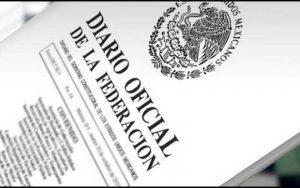
As a result of the initiative presented by the President of the Supreme Court of Justice of the Nation to the President of the Republic, on March 11, 2021, the “Decree declaring the amendment and addition of various provisions of the Political Constitution of the United Mexican States, relating to the Judicial Power of the Federation” (the “Decree”).
The constitutional amendments and additions provided for in the Decree consist essentially of the following:
- The Unitary Circuit Courts and Circuit Plenary Courts are replaced by Collegiate Courts of Appeals and Regional Plenary Courts, respectively, with the understanding that there must be at least one Collegiate Court of Appeals in each federal entity.
- The jurisprudence by reiteration of criteria is replaced by the figure of the single judicial precedent consisting of the reasons that support a certain decision of the Supreme Court of Justice, shared by a qualified majority (eight votes in the case of the Plenary and four in the case of the Chambers), are binding for the judicial authorities of the Federation and of the federal entities.
- In constitutional controversies, only direct violations of the Constitution and human rights recognized in international treaties should be analyzed.
- The autonomous constitutional bodies of the federal entities are legitimized as subjects of constitutional controversies.
- The Supreme Court of Justice will be empowered to hear the appeal for review in direct amparo in the event that, in its judgment, the subject matter of the appeal has an exceptional interest in constitutional or human rights matters, without it being possible to challenge the decision to dismiss the appeal.
- The Council of the Federal Judiciary shall be the body empowered to:
1)Determine the number, division, specialization by subject matter (including broadcasting, telecommunications and economic competition) of the Collegiate Circuit Courts, Collegiate Courts of Appeal and District Courts;
2) Establish by means of general agreements the circuits over which the Regional Plenums will exercise their jurisdiction, taking into account the workload and the statistics of the cases filed and resolved;
3)To appoint, in accordance with the corresponding legal framework, the Circuit Magistrates and District Judges, whose term of office will be 6 years, with the possibility that they may be ratified; and
4) Concentrate in one or more jurisdictional bodies the cases of serious human rights violations, based on the social interest and public order, and without being subject to the rules of turn and competence.
- The decisions of the Council of the Federal Judiciary shall not admit any appeal or lawsuit against them, except for those related to the assignment, ratification and removal of Magistrates and Judges, which decisions may be reviewed by the Supreme Court of Justice of the Nation.
- The Plenary of the Supreme Court of Justice of the Nation shall be empowered to issue the general agreements necessary to: (i) to achieve an adequate distribution of the cases to be heard by the Chambers, and (ii) to refer matters to the Regional Plenary and the Collegiate Circuit Courts, in order to expedite their processing and resolution.
- The Supreme Court of Justice of Mexico retains the power to appoint and remove its clerks, officers and employees.
- The Federal Judicial Training School is created under the Federal Judiciary Council, which will replace the Federal Judiciary Institute.
The Congress of the Union must issue the secondary legislation corresponding to the aforementioned constitutional amendments and additions within 180 business days following March 12, 2021, the date on which the Decree becomes effective. The secondary legislation provided for in the Decree shall primarily regulate:
- The competence of the Supreme Court and its operation in Plenary and Chambers;
- Jurisdiction of the Regional Plenums, Circuit Courts, District Courts and Electoral Tribunal;
- The criteria, requirements and procedures applicable to the appointment and removal of Circuit Magistrates and District Judges;
- Liability of public servants of the Federal Judiciary;
- The bases for the training and updating of officials for the development of the judicial career; and
- The provision of public defense services in federal court matters through the Federal Institute of Public Defense.
In this sense, it is estimated that after the constitutional reform, the Congress of the Union should issue the Judicial Career Law and reform the Organic Law of the Federal Judiciary, the Amparo Law, the Public Defense Law, the Federal Code of Civil Procedures, the Federal Law of Workers in the Service of the State, and the Regulatory Law of Sections I and II of Article 105 of the Constitution.





